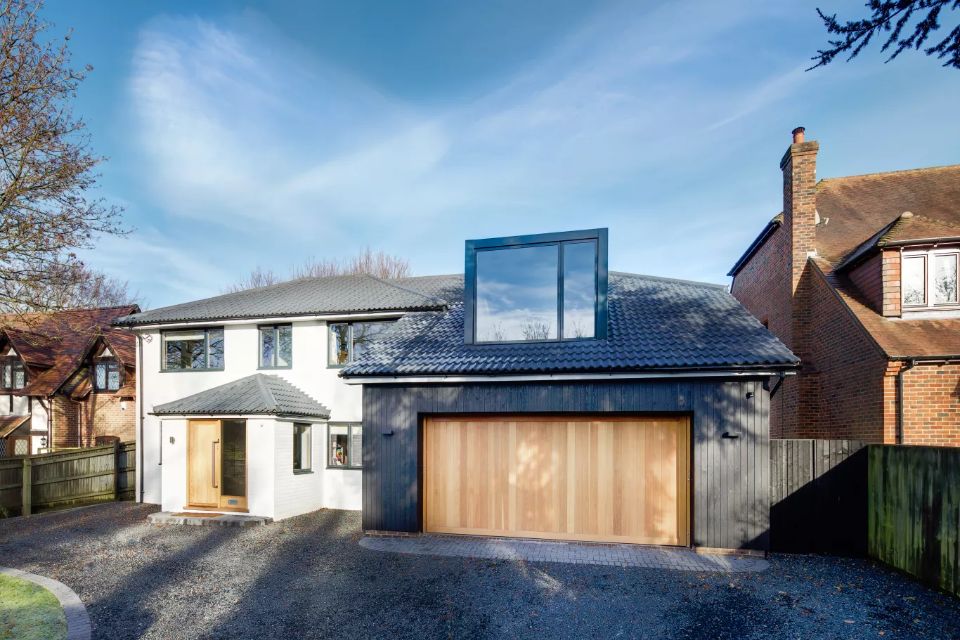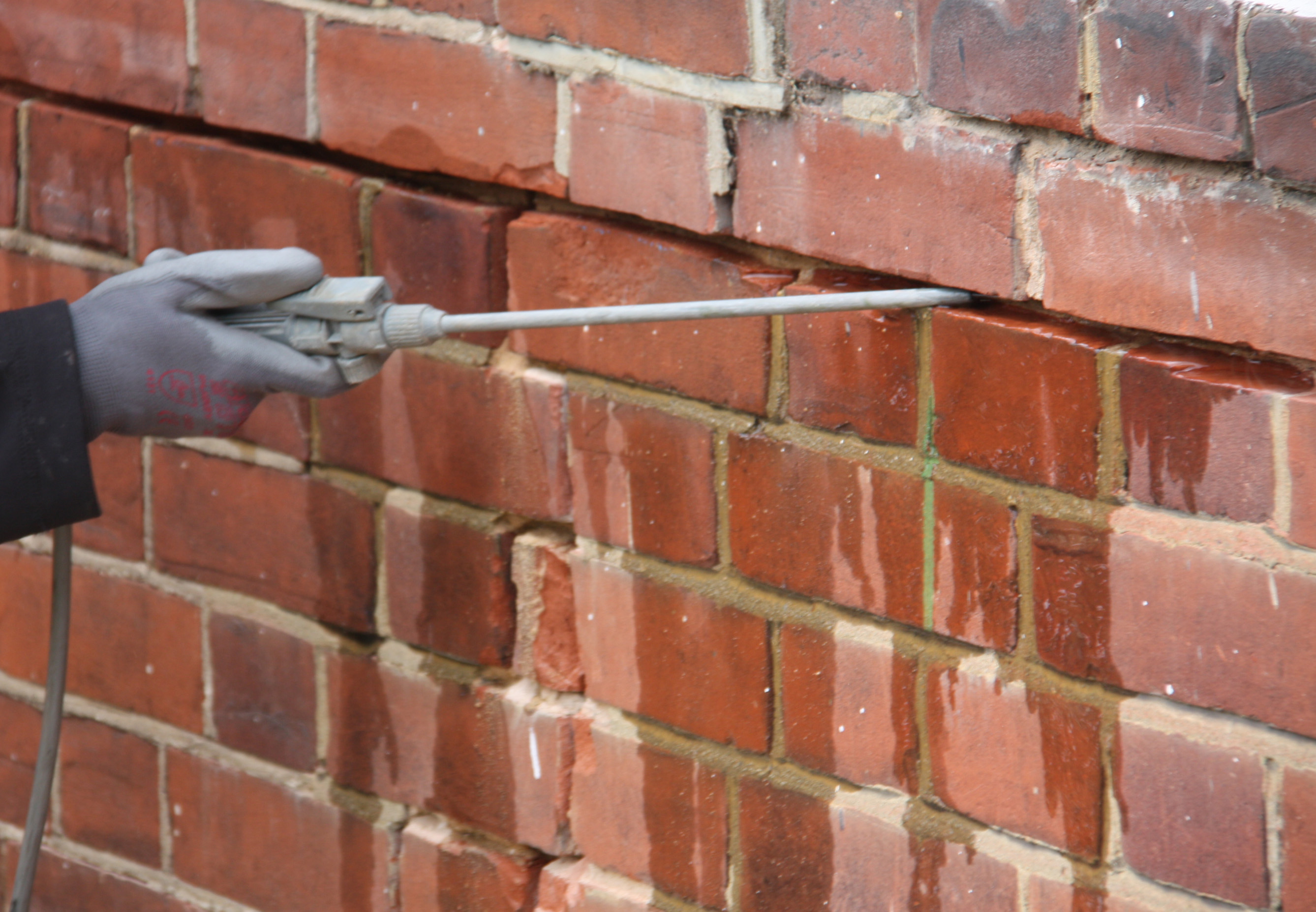How Much is a Structural Survey?
In 2025, the average cost of a Level 3 full survey is between £600 and £1,500, depending on the property value and other variables.
A structural survey solely considers the property's structural integrity. It does not assess the general state of the structure, such as cosmetic flaws, borders, or difficulties in the grounds - although these may still be noted if help towards identifying structural issues.
The engineer will conduct a detailed examination into the sources of any issues using their understanding of construction materials, their properties, and their performance.
If possible, the engineer will conduct studies to learn more about the structure of the property.
A structural survey will highlight any problems with the property.
While new homes come with a structural survey as part of the guarantee, older homes will require the buyer to arrange for this examination.
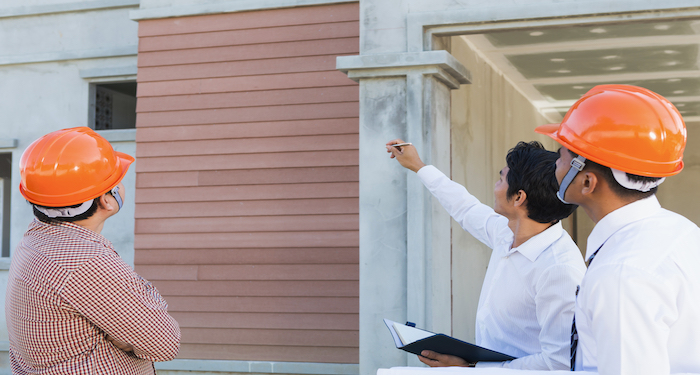
Why is a structural survey important?
A structural survey is important for determining what problems you have with your building. For example, if you are looking to buy a new house as an investment or living in, you may want to consider having one conducted if:
- The property is of the Victorian or Edwardian period
- The property is expensive
- The property is more than two stories high
- You can see the property needs structural repair works, i.e. if it is showing signs of any cracking or movement
A structural survey can help you determine whether you want to buy the house as-is or remedy the faults. It can also tell you how much money you'll need to spend to fix the problems.
A full structural survey is essential if you're planning on purchasing a new property.
So, if you own or are about to buy a home and are convinced that it is in good condition save for a specific structural problem, you may want to order a structural survey instead of a comprehensive building study, and if this is what you need, then you will learn everything you need to know here.
When will you definitely need a structural survey?
If you are going to acquire an older house, one that is in visibly poor condition or one with a unique layout, a thorough structural study may be the best option for you.
It's also worth investing in a comprehensive structural survey if you're buying a house that you want to renovate extensively, such as adding an addition or taking down internal walls, to ensure that the house can handle the amount of work you've planned.
In comparison to a conventional homebuyer’s report, the comprehensive structural survey will go into far more detail, and the surveyor will investigate every section of the property, including behind furniture, underneath floorboards, and in the loft.
Full Structural Survey Cost
This is the most thorough survey available, and it is appropriate for all residential properties. It's especially useful for older homes or those in need of maintenance. A full structural survey costs start from around £630 with prices reaching over £1,500 for larger or complex properties.
It's comprehensive, and often worth the extra money, although it doesn't normally contain a valuation (although in some cases this can be requested separately). As for examinations that involve inspecting under the flooring or behind walls, these areas aren't covered unless access has been provided to do so.
The surveyor should also educate you about possible repair choices.
The structural survey costs can vary depending on the value of the property.
For example, if you're purchasing a property valued between £200,000 and £300,000, you can expect the average cost of a full structural survey to be around £800 – £850. Survey costs typically increase with the property’s value, so higher-value homes may incur higher fees.
To avoid extra charges such as travel fees, it’s best to choose a local surveyor. Additionally, surveyors for higher-value properties may charge more due to increased insurance costs, and larger properties require longer inspection times, which can also raise the price.
It should also be noted that structural survey costs are often higher in areas such as London and the South East, due to the general cost of living.
Structural Survey Prices
The table below will show all the information you will need to know about the average costs of a full structural survey quote.
| Property Price Range | Average Structural Survey Cost |
|---|---|
| Up to £100,000 | £600 - £750 |
| £100,000 - £250,000 | £750 - £1,000 |
| £250,000 - £500,000 | £1,000 - £1,250 |
| £500,000 plus | £1,250 - £1,500 |
What are the Additional Costs for a Full Structural Survey?
Once you have agreed to have a full structural survey, then you may see additional costs that may add up to your total budget.
As a consequence, we have created this section of the article to go through the different types of additional costs that you should expect when you have a full structural survey completed on your property.
House Survey
A house survey is an expert evaluation of a property's condition that alerts a potential buyer to any issues. After their offer has been accepted by the seller, most homebuyers have a survey done on the property.
As a result, after a comprehensive structural examination, you may need a home survey or realise that a house survey is a better alternative for you. However, how much does a house survey cost?
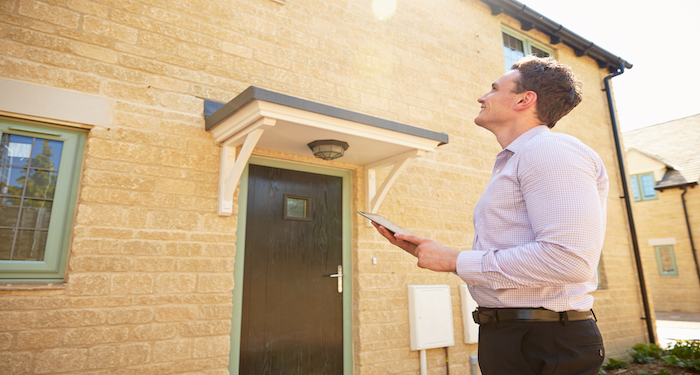
The length of a house survey is determined by the ease of access, the size/type of the property, and the number of surveyors involved.
Gas Safety Certificate
Sometimes, you may need to have your gas checked to make sure it is running correctly to make sure there are no health and safety risks in your home.
While this can potentially be suggested as a requirement within a full structural survey, physically carrying out the checks aren't normally included as part of the actual service. So, what is a gas safety certificate, and how much does it cost?

The average cost of a gas safety certificate check is between £60 - £120, depending on the number of appliances that need to be checked.
A certified gas engineer would usually issue a gas safety certificate after inspecting and testing gas appliances in the home to ensure they are safe and functional.
If you like to know more, further information is available on the cost of applying for a gas safety certificate.
Condition Report Cost
With an average price range of £260 - £620, a condition report is often just as reasonable as a new build assessment. A condition report is best for modern homes that are likely to be structurally sound.
A Condition Report is also referred to as a Level 1 Home Survey and is a short, surface-level evaluation of a property to identify any evident flaws. It will assist the buyer in identifying any concerns before making a purchase.
Developed by the Royal Institution of Chartered Surveyors (RICS), it’s the most affordable survey option. By using a "traffic light system" to flag concerns it provides a summary of any findings, albeit without including advice, recommendations or repair costs.
This type of survey is often recommended instead of a full structural survey for newer properties. It’s a good idea to explore the various property surveys available to find the one that best suits your requirements.

Tradesmen Costs for a Full Structural Survey
A full structural survey involves a qualified surveyor inspecting all accessible areas of a property to identify potential issues such as damp, subsidence, or structural movement. This type of survey is more detailed than a standard valuation or homebuyer report and is essential for older or unusual properties, or if major renovations are planned.
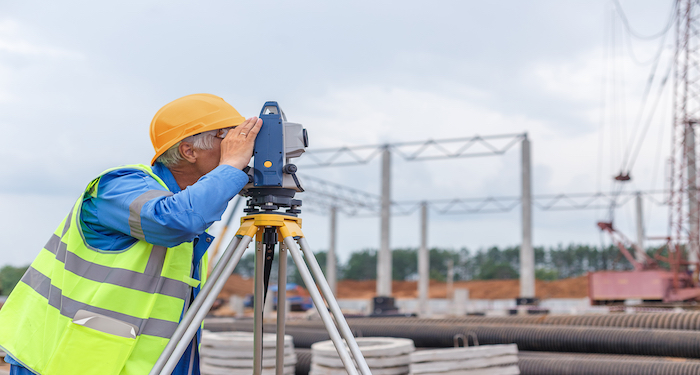
Labour only costs (which make up part of the overall cost) for a residential full structural survey typically range from £400 to £700, depending on the size and complexity of the property. For commercial properties, which may require more than one surveyor, the cost is around £250 to £400 per professional.
In some cases, additional preparation—such as lifting carpets or accessing lofts may be required. You may also need follow-up assessments for issues like wiring, damp, or foundations, depending on what the survey reveals. These extra investigations could add to the overall cost.
As for labour costs in areas such as London and the South East, these are likely to be higher than the National average as overall wages reflect the higher cost of living.
It’s important to choose an experienced surveyor with relevant expertise and to confirm what’s included in the fee, ideally a full written report with any repair recommendations. This ensures you get clear insights before committing to a purchase or renovation plan.
The labour cost of some of the information spoken about above are shown in this table:
| Job Description | Labour Cost |
|---|---|
| Building and land survey | £400 - £700 |
| Commercial evaluations | £250 - £400 per surveyor |
| Residential evaluation of land | £400 - £500 |
| Reports and data | None |
How Long Does a Full Structural Survey Take?
A full structural survey, often known as a building survey, is a detailed report on the state and construction of a home. It's especially valuable for purchasers looking at residences that are over fifty years old, have been refurbished, or are in a deteriorated state.

But how long does a full structural take to complete? Here we will go through the time process of having a full structural survey completed on your property.
What's Included In The Structural Survey Report?
All interior, exterior, visible, and accessible parts of the structure will be inspected for any potential flaws or defects during a structural building survey. A structural report is written if a survey indicates that the property has any major faults that will necessitate repairs or maintenance.
A complete examination of property problems and prominent dangers should be included in a structural building survey such as:
- Repair and maintenance recommendations tailored to your needs, including a cost estimate.
- Any previous structural work on the property should be described.
- If the surveyor is informed, it may include a property valuation.
- The survey will not go into great detail about the heating and electrical systems, but if desired, the surveyor can arrange for an expert to look into them more.
Therefore, it can be time-consuming as there is a lot of information and checkpoints that need to be looked over before the full structural survey is complete.
The length of time your property survey will take will be determined by the type of study you select and the size of the property. For example, a full structural survey, which is more in-depth, can range from 3 to 8 hours.
Receiving Your Report
When it comes to receiving the final survey report, the average duration is roughly 7-10 working days, with a more extensive structural survey requiring around eight working days, depending on the workload of the particular surveyor.
Before hiring a surveyor to complete the work, make sure to inquire about their timeframes, especially if you have a tight deadline to meet. It can also speed up the survey process if you find and connect with a surveyor directly rather than going through an intermediary like an in-house or estate agent advised surveyor.
What Areas of a Home Will a Surveyor Look At?
Below is a full list of things a surveyor will look at when completing a full structural survey.
- Assessment of construction materials and structural integrity
- Roof condition and structure
- Rainwater goods and waste drainage
- External and internal walls
- Windows and doors including condition and fitting
- Ceiling height and materials
- Visual inspection of Electrical systems
- Plumbing and heating systems
- Condition of internal flooring
- Decorative finishes such as paintwork and plastering
- Signs of damp and adequacy of ventilation
- Garages, sheds, and other outbuildings
- General site overview, including access and boundaries
If you are unsure about having a full structural survey, then here we will go through the several benefits of having a full structural survey completed on your property. So, if you want to find out more benefits of having a full structural survey on your home, then this is the place you need to be.
Peace of Mind
When repairing, upgrading, or updating a property, structural studies assure owners that the structure will last for many years. A structural survey's findings provide a clear picture of a structure's health, as well as information that might help with future maintenance budgeting.

The surveyor will not only point out structural flaws but will also suggest practical ways for resolving the issue. They will frequently explain what caused the structural issue in the first place.
This is very beneficial for preventing repeat problems in the future. Some repairs may be more urgent than others, but the surveyor will help you find the most cost-effective solution.
Inspect Places You Never Would
A surveyor examines many parts of your structure. They recommend the necessary repairs and treatments based on the condition. Many key areas of examination may be included, such as:
Moisture Detection
Water is one of the most common causes of building damage. Moisture that has crept into the building envelopes will be detected by the chartered surveyor. Humidity enters via the crevices in the wall and gradually undermines the structure, making it one of the most serious issues.
Basement Inspection
The basement is regarded as a junkyard and is one of the most neglected regions of the house. The basement, on the other hand, is extremely important because the foundation is directly beneath it.
Basement leaks and termite infestations wreak havoc on the foundation, and they can only be identified if a building inspection service is hired.
The experienced team inspects all of these areas, including windows, HVAC, and skylight inspection, and if any problems are discovered, they offer rapid solutions.
Roof Leaks
Your home's roof may be leaking water or is about to leak. If the roof is flat and made of RCC, there is a potential that it will leak after a few years. The building inspector will examine the roof, determine its condition, and suggest the best course of action.
Will Find Out the Bottom of Your Home Problems
Subsidence - this occurs when the earth beneath a structure shifts, causing instability. It usually happens unevenly, generating fractures in the property's structure, such as the brick walls.
Any breaches in the walls should be inspected by a surveyor because the movement could be caused by something far more serious, such as a sinkhole rather than merely normal subsidence.
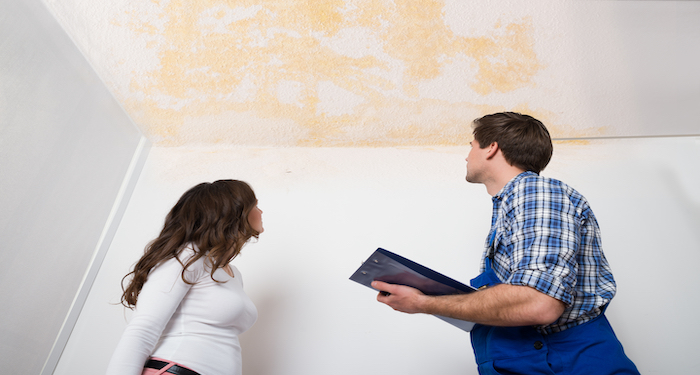
We've all seen footage of houses and automobiles sinking into a giant hole in the earth; the last thing you want to happen to your new home is for that to happen to you!
Although it may appear to be dangerous, subsidence may be corrected by underpinning; however, this can be very costly. However, as a buyer, the key issue is that if a house has subsidence issues, even if it has been underpinned, you will almost certainly be charged a higher insurance price.
Alternative Home Surveys
As well as full structural surveys there are other house surveys you may need as a home owner. The below table explains what they are and when you would need them:
| Survey Type | Description | Why You Might Need It |
|---|---|---|
| Condition Report (Level 1) | Basic report on the overall condition with traffic-light ratings; does not include advice or valuation. | Suitable for newer, conventional homes in good condition. Offers peace of mind before purchase. |
| HomeBuyer Report (Level 2) | Mid-level survey covering visible defects, maintenance advice, and possibly a market valuation. | Ideal for standard properties in reasonable condition. Balances detail and affordability. |
| Building Survey (Level 3) | Detailed inspection covering structure, defects, and recommended repairs; does not usually include valuation. | Best for older or unusual buildings, or if renovation work is expected. |
| Specialist Surveys | Target specific issues like damp, asbestos, timber decay, or structural movement, often by experts. | Useful if concerns are raised during general surveys or viewings. |
| New Build Snagging Survey | Inspects new-build homes for defects or unfinished work before completion or handover. | Important for identifying issues developers should fix under warranty or snagging agreements. |
FAQs
Q: Is a full structural survey a legal requirement?
A: Although not a legal requirement, when buying a home it's important to think critically. The money spent on a survey could save you thousands by giving you ammunition to negotiate a lower price — or by making you reconsider buying at all.
Q: What should I do if my survey uncovers problems?
A: This is perfectly normal, especially in older properties. Attend and ask questions, or if you can't, once you've received the report, don’t hesitate to follow up if something isn’t clear.
Q: Can a structural survey affect my mortgage application?
A: Yes. If the survey uncovers any structural issues, your mortgage lender may require repairs to be carried out before approving a mortgage, or this can potentially impact the amount they are willing to loan. If the level of work required is more serious, they might refuse to lend altogether.
Q: Who is liable if anything is missed?
A: Your structural surveyor is most likely insured for professional negligence. In the event they miss a significant issue that should have been spotted, you may be entitled to compensation. However, if this happens, it is always recommended to seek legal advice first.
Q: Where do you find a surveyor?
A: Make sure your surveyor is a member of a regulating organisation like the Residential Property Surveyors Association (RPSA) or the Royal Institution of Chartered Surveyors (RICS) (RICS). On the RPSA or RICS websites, you should be able to locate a surveyor.
Recommendations can also be found from:
- Enlisting the help of friends and relatives.
- Conducting an internet search – in addition to the website, you should check online ratings and reviews.
- Asking the estate agent – but they may receive a commission that will raise the cost, so you don't have to follow their advice.
- Ask your solicitor or conveyancer – but they may receive a commission that will increase the cost, so you don't have to follow their advice.






